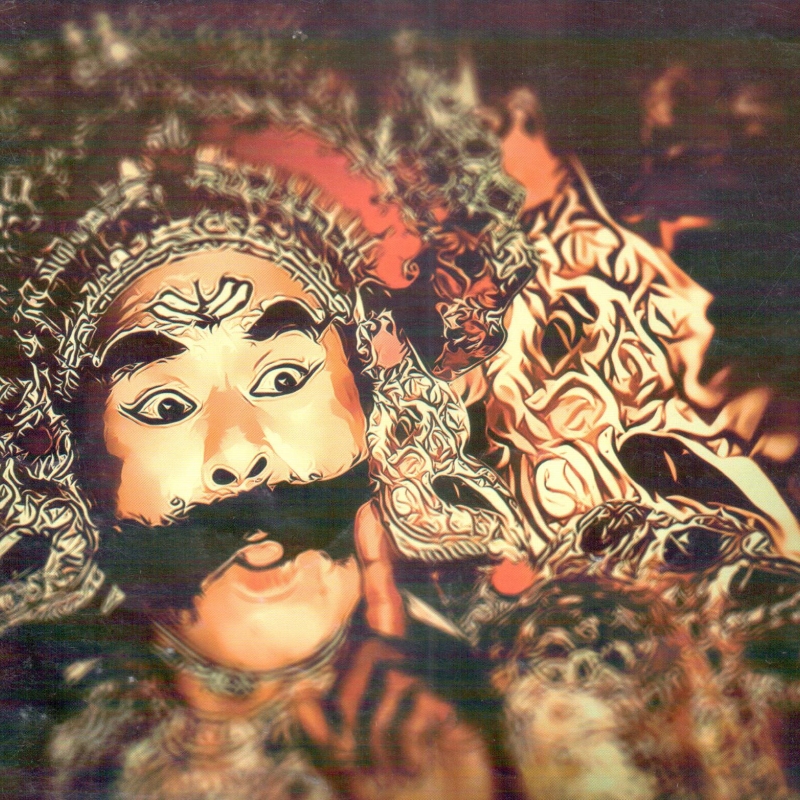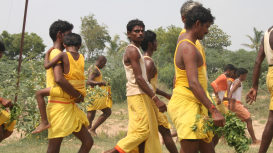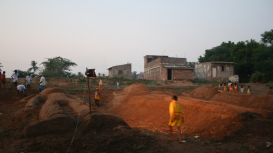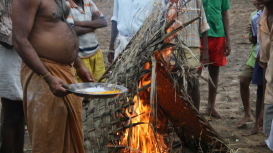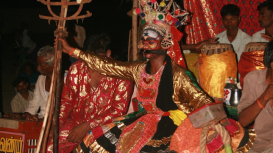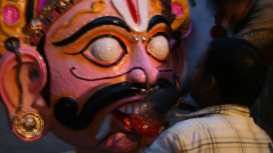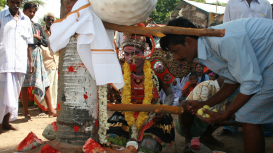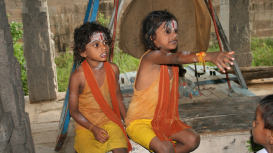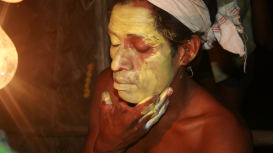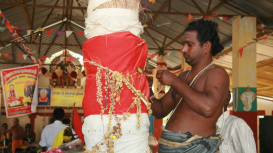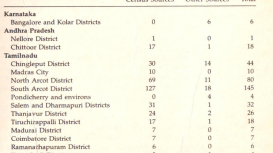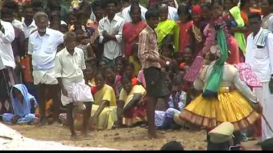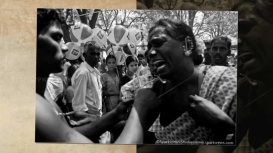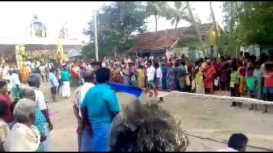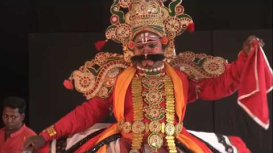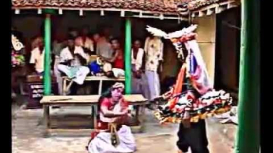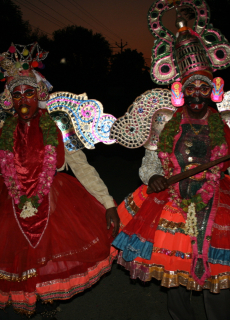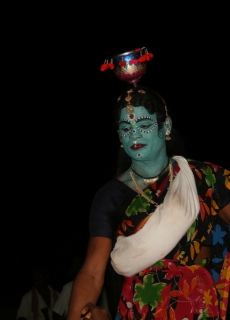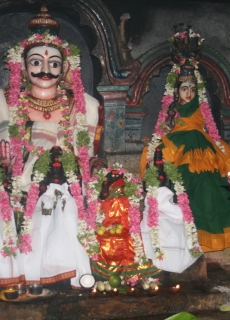This module presents the Mahabharata festival of Tamil Nadu (Bharathakoothu), its settings, rituals, storytelling (Piracankam), theatre (koothu), festivities and practices in a series of photo essays. Bharathakoothu is a large-scale festival that takes place nearly for a month in the northern districts of Tamil Nadu during the summer months (April-June). The festival usually takes place in more than 40 villages simultaneously though not in the same villages every year. As a post-harvest festival, the wealth of the harvest determines the capacity of the village to host the festival. A village may decide to host the Bharathakoothu in its entirety or on a small scale lasting for three to seven days. The site of the Mahabharata festival is normally the Goddess Draupadi temple. Since the Draupadi temples are found all over the northern districts of Tamil Nadu (including the city of Chennai), the festivities are widespread and have a huge following. In the northwestern districts of Tamil Nadu (Salem, Krishnagiri and Coimbatore), the Koothu exists as a folk theatre with a slight difference in performance style and the costumes. The photo essays in this module make use of the field photographs taken in the fifty Draupadi Amman temples in the district of Kanchipuram and the Bharathakoothu festival in the villages of Takkolam and Tuci. In a month-long Bharathakoothu, mornings are devoted to rituals and processions. For the first fifteen days, the afternoons are dedicated to narrating the Mahabharata by professional storytellers. From the 16th day onwards Mahabharata episodes are performed as Koothu in night-long performances. Many of the episodes in Mahabharata are performed not just on the stage but also in the village streets, and sometimes in the entire village with the villagers participating as citizen characters of the Mahabharata. The participatory aspects of Bharathakoothu make it one of the largest environmental theatres in the world. The Bharathakoothu festival culminates with the fire-walking of the devotees of Draupadi and the coronation of Dharmaraja, the eldest of the Pandava brothers.

M.D. Muthukumaraswamy
M.D. Muthukumaraswamy is a Tamil writer, Director of National Folklore Support Centre, Chennai, and a Consultant at Sahapedia.
